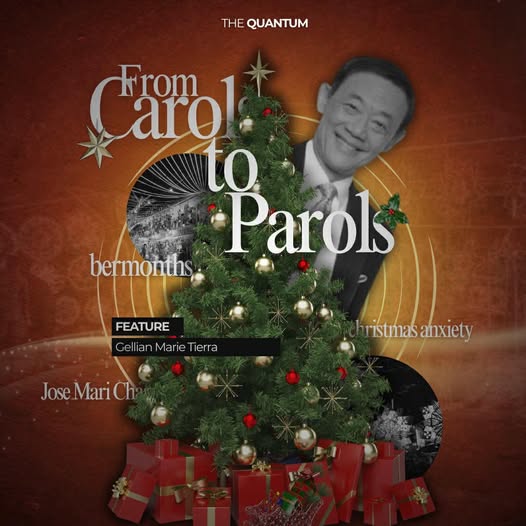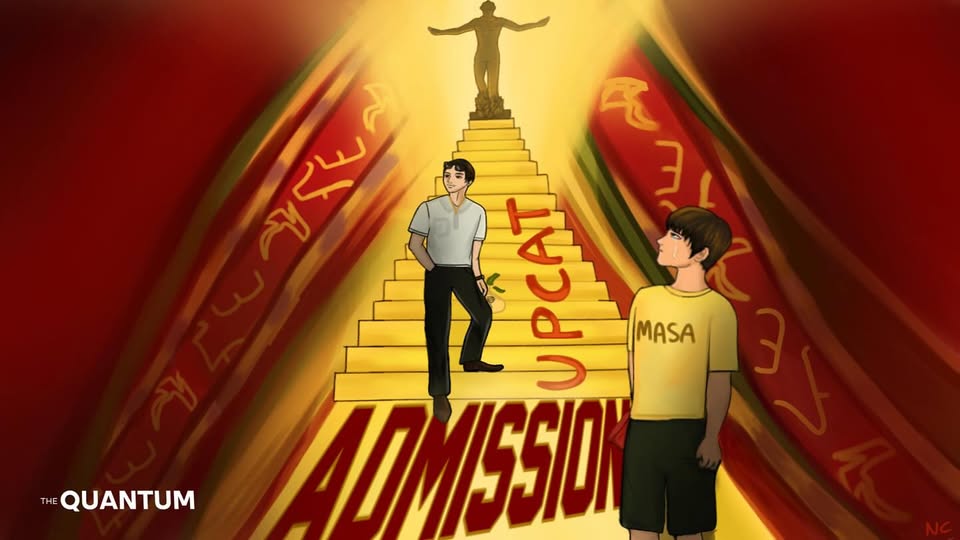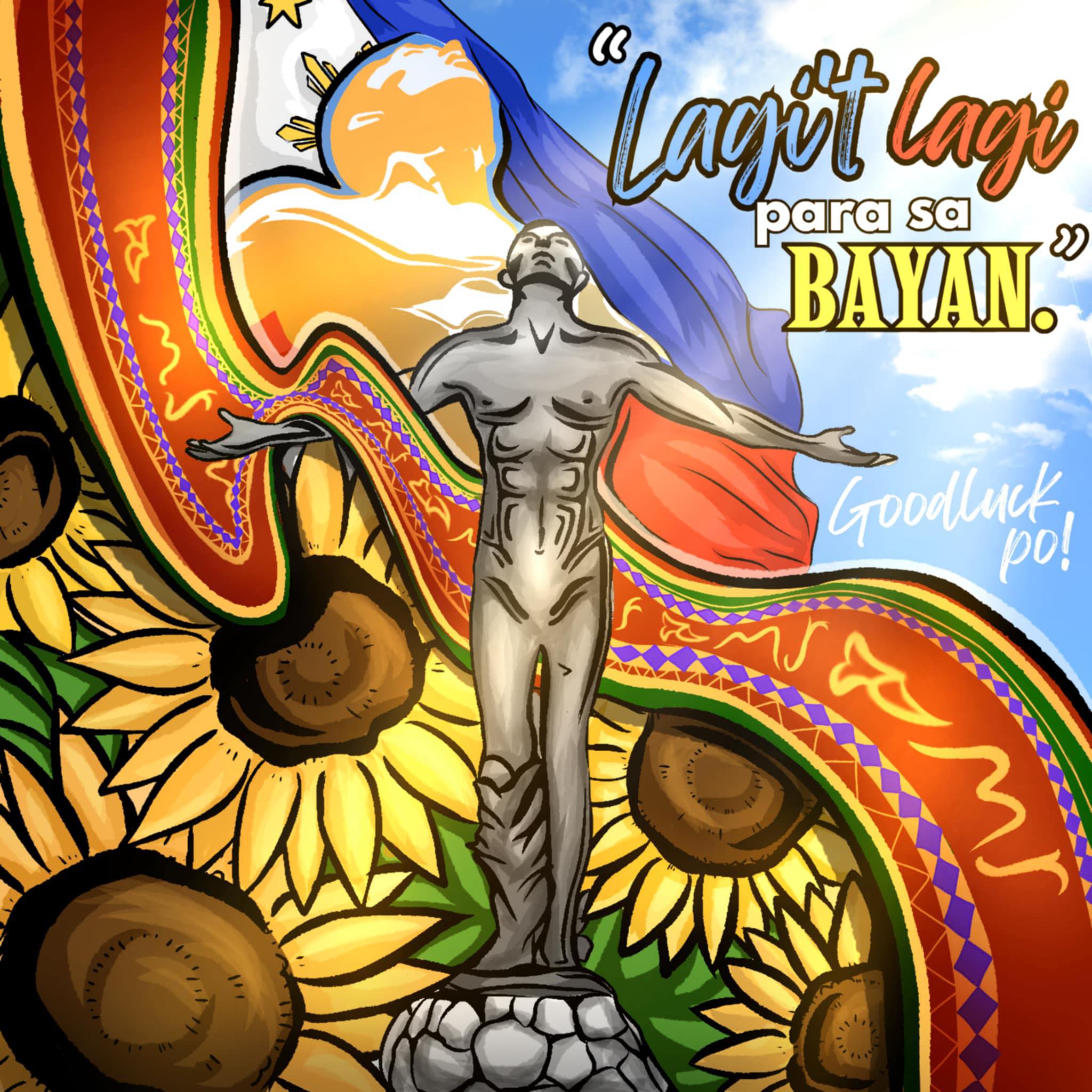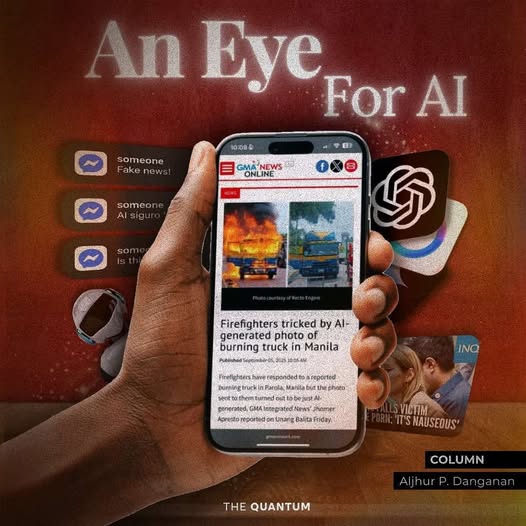by: Aljhur P. DangananCopyedited by: Ayesha Ronquillo, Estella TaluaPublication by: Marthiena Veniezha Atienza Artificial intelligence has long embedded itself in our society—applied in fields, industries, and communications, becoming a common place in routine lives. The problem, however, is when we are living amid an era where AI fuels misinformation, the truth relies on our ability to be literate—a standard that too often falls short. Scrolling through social media can feel tiresome, especially when confronted with uninspired, AI-generated videos. Yet the danger escalates when these same tools are weaponized to spread misinformation. What is most alarming is not the presence of such content—it is the overwhelmingly large number of people who fail to see its deceptions. When an AI-manipulated photo of a trailer truck caught on fire in Manila spread online, the response of four fire trucks from the Manila International Container Terminal was rendered useless. If a fake image produced in presumably mere seconds was able to deceive the public, what more if these tactics are wielded for far graver purposes? From digital smear campaigns, deepfakes, to automated texts and generative media disguised as convenience, the media landscape is plagued with distrust and deception. This constant exposure has posed the greatest threat: one’s inability to discern what is real. Casual remarks like “Is this AI?” and “AI siguro ‘yan” seem harmless on the surface, but they reveal a deeper, dangerous crisis—people conditioned to consume media irrationally. Yet another frustrating byproduct of this issue lies in the baseless accusations thrown at any work deemed “too perfect.” A rather impressive digital artwork will not be spared from being labeled as AI. In another case, you would be one em dash away from dealing with the same situation. Actress Angel Aquino denounced the use of AI to violate women’s rights in a senate hearing last Thursday after falling victim to deepfake pornography. In a tech-driven age, the dehumanization of human rights, especially with women, have become far more alarming. Aquino rightly urged the committee to punish cyber perpetrators and seek legislation of stronger laws regarding the proliferation of deepfakes. On the other hand, shaming people who fall victim to AI-driven misinformation will not solve anything. Media literacy may not be dead, but it remains in a fragile state. When the masses are being exposed to the threats of AI, it is only right that they are equipped with separating facts from falsehoods. Likewise, they must be able to approach any piece of media in more than just a superficial way. Adapting to the digital era will always require one thing: literacy. Literacy is not exclusive to reading and writing, nor is it confined to academics. It is our ability to analyze, question, and navigate lifelong information that is crucial in shaping the world. It is the foundation of societal progress. AI and media literacy, specifically, have become a need for our digitally divided civilization. In the Philippines, the adoption of AI tools and partnerships for literacy development have begun to take shape. Albeit, the education system still falls short in offering specific disciplines or courses focused on understanding AI itself. What truly matters is equipping people to grasp how intelligent systems work. Because the problem is not AI itself. The deeper issue lies in how we utilize it ethically. When people grow accustomed to irresponsibly using AI, you get the worst of both worlds: the loss of genuine human effort, and the spread of its abuse meant to manipulate the masses. If our only course of action is to hold AI responsible, then we are fundamentally failing to grasp the issue at hand. AI bears no liability for misinformation—it is merely a tool, one that happens to be accessible for its perpetrators. Perhaps, the crux of the matter is not AI itself, but the people. False news has always been a product of human schemes, AI only makes it harder to recognize. To fight against misinformation is to advance media literacy with AI. To be literate is to engage with information with purpose, provided with awareness, education, and tools that will mold a literate society towards truth. The pursuit of truth will only crumble when AI remains unchecked, left in the hands of the culprits. Because no matter how advanced misinformation can get, a well-informed and resilient public is the strongest defense against manipulation. It is only through being adept and competent that we can empower ourselves to verify information we encounter, enter the digital world with no fear of deception, and navigate the media landscape with one mindset: that no amount of generative exploits must overwrite the truth. Only then can we truly say that we are not just passive consumers of media, but conscious truth-bearers, ready to bring what’s real to light in a world riddled with illusions.

From Carols to Parols
by Gellian Marie TierraCopyedited by: Carlos Reily AgripaPublication by: Peter Aslan Bien Christmas is celebrated nowhere quite like in the Philippines. As soon as September arrives, malls echo with Jose Mari Chan’s medley, varicolored parols and holiday lights illuminate the streets, and anywhere you go, you’ll be met with a festive atmosphere. While the rest of the world waits for December, Filipinos set up their Christmas trees four months earlier, making the Philippines home to the longest Christmas season in the world. Catholicism plays a central role in how Filipinos celebrate Christmas, but it isn’t the sole reason the merriment begins so soon. The liturgical calendar shows that the formal preparation for Christ’s birth, known as Advent, doesn’t actually start until late November, with the four Sundays leading to Christmas Day. If not purely religious, what drives this four-month-long holiday spirit? “Christmas anxiety” is something many Filipinos experience as they strive to make the holiday season perfect for their families. The long celebration means months of preparing decorations inside and outside homes, finding the perfect gift for loved ones, and overwhelming endless expenses. According to sociologist Bro. Clifford Sorita, the early start of Christmas in the Philippines is due to a psychological countdown framework. Beginning on September 16, the 100-day countdown helps Filipinos manage holiday-related stress by providing ample time to prepare. It acts as a “secondary motivator,” allowing people to better allocate their time to important tasks like gift-buying and decoration. Instead of letting Christmas time turn into a nightmare of sold-out essentials and overcrowded grocery lines, Filipinos learn to manage their time efficiently and wisely to enjoy the rest of their “Ber Months”. The Ber Months are not only about tradition and festivities—they also bring significant economic and social effects across the country. This lengthy celebration boosts consumer spending, which helps the economy to flourish. Malls and markets see increased sales as early as September, particularly in early gift purchases, clothing, and decorations. The demand for parols, Christmas lights, and holiday treats like Puto Bumbong, Leche Flan, and Hamón rises during Ber Months, which profits small businesses and street vendors, helping them to also prepare Christmas for their families. In Divisoria, stalls overflow with fairy lights, Santa hats, and affordable toys — making it the perfect place for Filipinos to shop for Christmas essentials. The bustling market comes alive with the chatter of vendors, eager buyers, and glitter of decorations that fall to the ground. This prolonged holiday season has been referred to as an “economic stimulus” that keeps local companies and jobs afloat in the year’s last quarter. Socially, Ber Months help reconnect friends and families together again. Filipinos organize and plan reunions, Christmas parties, and attend Simbang Gabi with their loved ones, participating in small but meaningful customs because of the early preparation. This season’s social component emphasizes Filipino virtues of hospitality, generosity, and community. This last quarter in the Philippines is also a feast for the senses. Everywhere the eye lands, there’s prismatic lights and a kaleidoscope of decorations that evoke familiarity and nostalgia. Streets are adorned with varicolored parols, houses wrapped with glimmering lights, and malls transformed into winter wonderlands, even in a country with no snow. The sounds of Christmas are unmistakable. As soon as September begins, Jose Mari Chan’s timeless carols fill shopping malls, jeepneys, and radio stations. Choirs rehearse for Simbang Gabi, while children roam neighborhoods singing carols with makeshift tambourines and drums made of bottle caps and cans to earn a little bit for themselves. The music is a constant reminder that the season of joy has arrived. But perhaps the most indelible of all is the feeling. It’s the warmth of neighbors greeting each other with “Merry Christmas” in this tropical late November. It’s the anticipation of seeing your distant family members in reunions happening just before Christmas. It’s the sweet feeling after eating Bibingka and Puto Bumbong that’s never the same with each homemade recipe. And it’s the bubbly, light-hearted feeling while wrapping presents, wanting the receiver to appreciate it as much as you do them. Christmas is more than just a time of year in the Philippines; it’s a drum that begins to beat in our hearts as early as September. We start not because we are impatient but rather because love demands time: time to find gifts that come with love, time to hang parols that light up our nights, and time to create memories that will endure beyond the year and the season.

The Silent Cost of Privilege
by: Lara Venice S. De LeonCopyedited by: Stacie Marie CatalloPublication: Noelle Isabel Cabrera Every year, the University of the Philippines College Admission Test (UPCAT) is seen as more than just an entrance exam—it becomes a national spectacle. Tens of thousands of hopeful students flock to testing centers, with some even willing to sacrifice their all for their merits to be recognized. But behind the posters, prayer candles, and sharpened pencils, lies an ugly, uncomfortable truth: not everyone is meant to bask in the spotlight. UP is not a trophy. It’s a promise–a promise that no matter how little you have, if you’re brilliant and hardworking, the nation will invest in you. But when this promise is given to those who already have everything, what’s left for those who don’t? The University of the Philippines was never designed for the elite. It was created for the children of farmers, tricycle drivers, single mothers, and minimum-wage workers—students who, despite poverty and circumstance, dare to dream. But every year, we see more and more of the opposite. Students from affluent backgrounds, with polished credentials and lives of comfort, are steadily filling the spaces once meant for the underserved. These students often outperform others, not purely because they are smarter, but because the system has long been tilted in their favor. Families from the top income brackets can spend hundreds of thousands of pesos–or even more, on private school tuition and specialized review centers for UPCAT. Some even send their children to exclusive summer camps designed for test-taking strategies. In contrast, many public school students cannot afford any form of professional review. They rely solely on free online reviewers, borrowed textbooks, and self-study in between household chores or part-time work. With such unequal starting points, it’s no surprise that, as The Philippine Star reported, applicants with an income advantage are 13% more likely to be admitted into UP than those from poorer households. That number reflects more than just academic preparation—it proves that the system favors those who already have more. And that’s not equity, it’s quiet erasure. State universities have limited slots. And every time a student who can afford five-digit tuition in private schools takes one of those slots, a public high school graduate loses it. That’s one more broken dream. One more soul left behind by a system that promised to serve the underprivileged. On the other hand, privileged students often defend their place in UP by saying, “I reviewed just as hard,” or “I earned my spot.” That may be true, but effort exists within vastly different realities. Many come to UP not just for prestige, but for quality education, social awareness, and the chance to be part of a community that values critical thinking and public service. Some genuinely want to immerse themselves in the struggles of the majority and break out of elite bubbles. Still, good intentions don’t erase systemic inequality. While one privileged student is admitted, there is always an underprivileged student who was just as deserving, yet had fewer advantages to prove it. As responsible citizens, we must remember whom public schools were built for. Public education should exist to correct inequality, not quietly reinforce it through systems that appear neutral but benefit the already advantaged. As Nelson Mandela once said, “Education is the most powerful weapon which you can use to change the world.” But for that weapon to be truly powerful, it must be placed in the hands of those who need it most. When quality education becomes most accessible to those who already hold power, it ceases to be a means of transformation and becomes merely a recycled privilege. If education is a right, then it must be made accessible not just in theory, but in practice, through policies, priorities, and admissions that reflect the realities of inequality. Anything less is injustice dressed up as fairness

Nangangarap maging Iska
| Danica Wayne D. Araneta| Leigh Ann Prado Rebultong hubad—simbolo ng walang pag-aalinlangang pag-aalay ng sarili, ng sakripisyo, at tapat na paglilingkod para sa bayan. Numero unong unibersidad na matatagpuan sa Pilipinas. Hinahangaan, tinitingala at pinapangarap ng karamihan. Ang makapag-aral at higit sa lahat, makapagtapos dito, ay itinuturing na isang malaking tagumpay. Tagumpay na nagbibigay pag-asa at panibagong sigla sa sinumang nangangarap. Ngunit ano nga ba ang taglay ng Unibersidad ng Pilipinas at ito’y itinuturing na hangarin ng napakaraming kabataang Pilipino? “Mahirap makapasok d’yan!”, “Parang magsusuot ka sa butas ng karayom bago ka makapasa!”, ”Kapag nakapagtapos ka riyan, abot langit ang tuwang mararamdaman mo!” Iilan lamang ito sa mga komentong madalas kong naririnig. Sa bawat araw na puno ng pasanin mula sa mga pagsusulit, takdang-aralin, at iba pang gawaing pang-akademiko, hindi natin maiwasang itanong sa sarili: “Paano ko mararating ang unibersidad na kinikilala bilang sagisag ng tagumpay at oportunidad na matagal ko nang minimithi?” Ang Unibersidad ng Pilipinas ay hindi lamang basta – basta isang pampublikong paaralan. Isa itong kinatawan ng mga pangarap — mga pangarap na nangangailangan ng ‘di matatawarang dedikasyon, sakripisyo, at pagsisikap. Madalas, ang kaisipang ito ang nagsisilbing apoy na nagtutulak sa atin upang magpatuloy sa kabila ng pagod, puyat, at hirap. At ang laban na ito ay hindi lamang para sa ating mga sarili, kundi para rin sa mga taong patuloy na naniniwala sa atin, at sa ating mga kakayahan. Ang landas patungo sa UP ay hindi madaling tahakin. Puno ito ng mga pagsubok, pagdududa, at paulit-ulit na tanong kung sapat na ba ang ating ginagawa. Ilang oras na ba ang ginugol sa pag-aaral ng mga leksyong tila hindi maintindihan? Ilang gabi na bang tulog ang isinakripisyo, ilang kasayahan ang ipinagpaliban, at ilang beses na bang muntik nang sumuko? Ngunit sa kabila ng lahat ng ito, patuloy pa rin tayong naniniwala. Dahil alam nating ang bawat hirap ay may kahihinatnang ginhawa—isang mas maliwanag na kinabukasan hindi lang para sa atin, kundi para sa ating mga pamilya. Ang pagpasok sa UP ay hindi lamang usapin ng mataas na marka o katalinuhan. Ito ay higit na pagsubok ng tibay ng loob, determinasyon, at handang magsakrapisyo lampas pa sa inaakala ng iba. Sa bawat gabing pinipilit mong manatiling gising upang matapos ang mga gawain, sa bawat pagsubok na pilit mong nilalampasan, ipinapakita mo sa sarili mo na kaya mong abutin ang pangarap mo. Ang maging Iskolar ng Bayan. Ang pangarap na makapasok sa UP ay nagsisilbing ilaw sa madilim na daan. Isang inspirasyon sa ating mga puso upang hindi sumuko., Tinuturuan tayo ng pangarap na ito na ang tagumpay ay hindi nakakamtan sa isang iglap, kundi bunga ng pananalig, tiyaga, at pusong handang magsilbi sa lahat. Hanggang sa dumating ang araw na hawak mo na ang liham ng pagtanggap, hanggang sa maisuot mo na ang sablay na sagisag ng tagumpay, patuloy tayong mangangarap, magsusumikap, at maglilingkod sa nasasakupan. Dahil sa Unibersidad ng Pilipinas, ang bawat pangarap ay nagkakaroon ng layunin—ang maging tunay na alagad ng bayan.

Pusta sa Kinabukasan
| Dahlia Aganan| Leurlee Sicat Isang click lamang. Ganoon kabilis magbabago ang takbo ng buhay mo. Sa likod ng malalaki at makukulay na ads na naglalayong manghikayat, nagtatago ang sistemang unti-unting sisira sa kinabukasan at lipunan. Sa mundo ng online gambling, hindi laging may panalo. Handa ka pa rin bang ipusta ang buhay, dangal, at kinabukasan mo? Sa mabilis na pag-usbong ng teknolohiya, isang click lang ang pumapagitan sa isang netizen at sa mundo ng pagsusugal. Dahil sa madaling access sa iba’t ibang mga online gambling sites, hindi ligtas ang sinoman, mapa-estudyante man o may mga trabaho o wala, sa mapanghatak na bitag nito. Libangang nagbabalat-kayo bilang isang simpleng laro sa una, ngunit kinalaunan ay nagsisilbing banta sa moralidad at seguridad sa lipunan. Nagsimula sa maliit na pusta, hanggang sa lumaki nang lumaki, na maaaring humantong sa pangingikil at pang-uumit ng pera mula sa mga magulang. Muling lumulutang ang isyu ng online gambling dahil sa nakababahalang paglobo ng kaso ng mga menor-de-edad at mag-aaral na nalululong dito. Sa kabila ng mga regulasyong naglilimita sa pag-access nila rito, hindi pa rin lubos na ipinagbabawal ang paggamit nito. Sa murang edad pa lamang ay nahuhumaling at nasasanay na sila sa takbo ng pagsusugal, kung saan isa sa mga nakaiimpluwensya rito ay ang lantarang paglaganap ng mga ads sa iba’t ibang mga anyo tulad ng billboards at social media ads na nanghihikayat kahit walang age verification. Nagbigay daan ang isyung ito upang mabigyang pansin ang kakulangan sa komprehensibong panukala sa paghihigpit sa mga sugal na lantad sa social media. Ilan sa mga mambabatas na nanguna rito ay si Senator Loren Legarda; kamakailan lamang ay naghain siya ng panukalang ganap na magbabawal sa pagsusugal sa iba’t ibang porma nito. Ayon sa kanya, ilan sa maaaring maging dulot ng pagsusugal ay ang panganib sa kanilang pamilya sa aspetong pinansyal at sikolohikal. Maliban sa mga nabanggit na epekto, umaayon din dito ang pahayag ni Department of Health (DOH) Secretary Teodoro Herbosa sa kaniyang panayam sa Philippine Multisectoral Nutrition Project (PMNP) National Mayors’ Forum 2025 noong Miyerkules na nakakaapekto rin ang adiksyon sa pagsusugal sa kapasidad ng isang tao na mag-isip, gumawa, at lubusang nakapipinsala pa sa iba. Bagamat hindi maitatangging may malaking bahagi ito sa paglago ng ekonomiya, sa anyo ng mga trabaho at pamumuhunan, hindi ito dahilan upang magpikit-mata sa mga pinsalang dulot nito. Balewala ang mga kontribusyon nito kung nagsisilbi itong daan sa kapahamakan ng mga Pilipino. Mas mahalaga pa ring isaalang-alang ang kapakanan ng bawat sektor na apektado nito, at isipin ang mga negatibong aspeto na kaakibat ng pagkagumon sa gawaing ito. Marapat lamang na tutukan ang paggawa ng resolusyon sa isyu ng online gambling lalo na at hindi dapat ipagsawalambahala ang sistema na nagtutulak sa mga kabataan sa panganib. Sa pangunguna ng Department of Justice (DOJ) katuwang ang National Telecommunications Commission (NTC), maiwawaksi ang iba’t ibang porma ng patalastas at matitiyak ang epektibong panukala ng mas mahusay kaysa sa simpleng pagsaway lamang. Ang istriktong pagpapatupad ng mga batas at mas pinalawak na adbokasiya para sa edukasyon ukol sa panganib ng pagsusugal. Hindi na dapat isugal ang kinabukasan ng buong sambayanan bago kumilos. Bagkus, magsilbing pamulat ang krisis na ito sa mga mga lasong matagal nang sumisira sa sistema ng lipunan. | https://mb.com.ph/…/many-have-lost-control-legarda-bill… | https://www.gmanetwork.com/…/online-gambling-a…/story/

If you’re still there, I will find you
by: Rhian TabuadaPubliction by: Yelena Fabricante MOVIE: Paper Dolls Within these city lights, I thrive and find freedom on the stage. Heavy makeup hides my face, yet I wear a bright smile, red lips stretching to my ears. In this crowd, I find my identity embraced, and I feel at home in their arms. Poverty is no joke in my life. Every waking hour, I have to shrink back into the shell I once shed, the tight space crushing me deep inside the darkness, forcing my voice down until I am speechless. Yet, if it means I can help my family, I will endure the pain of hiding my true self, of who I am. However, within the four walls that tower over me, there is a man who seems to defy the norm. Old man, why do you accept me? Your religion despises my kind, urging you to raise your pitchforks to drive us out as if we were witches, pushing us to the stake to be burned alive. Your eyes, old and wrinkled, yet full of wisdom, may have once shown a flicker of hatred, but now you see me as someone. Gone is the time when you saw me as a spawn of the devil. No, you now see me as a human like you. I am your equal, but I never expected you’d call me your family. I am truly honored. How I long to be with my own, but here, on the soil of a land miles from home, I find someone who can fill the void. In my eyes, you’re the second father I needed. And in your shoes, you look back at me with the same affection, as if I were your own daughter. Son. Child. But fate is cruel to both of us. Now I am stripped of my title, my job. Kicked out, shunned, and returned to the soil I came from, with nothing but my clothes and the money I managed to scrape and save. When will I see you again? Time flies. Even now, as I pick myself up and face my own patients–who now call me their nurse–I still see your eyes in them. I am no longer a dancer, but that doesn’t mean my identity has been taken from me. I am who I was meant to be, like a bird finally freed from its gilded cage. I flap my wings against the wind, soaring over the horizon. But just know, if you’re still there, I will find you. And maybe, once more, we can be family.

Panulat, Paninindigan, at Pangarap
Isinulat ni: Claire DomendenDibuho ni: Leigh Ann PradoSinuri nina: Gng. Myra Jaime at Ayesha Salazar Ngayong sumapit na ang ika-19 ng Mayo 2025, unti-unting tumitindi ang tibok ng puso ng bawat kabataang mamamahayag sa bansa. Ang National Schools Press Conference (NSPC) ay higit pa sa isang paligsahan — ito ay isang paglalakbay ng mga kabataan na handang maging tagapagsalita ng katotohanan. Hindi lamang ito laban ng talino at husay, kundi laban din ng prinsipyo at layunin. Sa entabladong ito, bitbit namin ang panata: magsulat hindi lang para manalo, kundi upang mamulat, magmulat, at magsilbing tinig ng bayan. Hindi madali ang paghahanda. Habang ang iba’y nagpapahinga, ang mga mamamahayag ay nakayuko sa mga papel, nakikipaglaban sa pagod at pagpupuyat. Isinusuko ang ginhawa at aliw ng karaniwang kabataan — ang gala tuwing Sabado, ang tulog sa hapon, at minsan pati na ang mga kasiyahan kasama ang pamilya. Lahat nang ito’y pinapalitan ng oras para magsanay, magsulat, at patuloy na humasa ng kakayahan. Para sa amin, ang bawat sakripisyo ay binhi ng tagumpay. Kasama rin sa paghahanda ang paglampas sa sariling mga takot. Oo, ngayon kami’y kinakabahan — sa bigat ng kompetisyon, sa laki ng inaasahan. Ngunit sa halip na umatras, kami’y lalapit pa lalo. Sapagkat ang tunay na mamamahayag ay hindi lang mahusay magsulat — marunong ding tumindig sa gitna ng kaba, maglakad sa kabila ng duda, at magsalita kahit walang pumapalakpak. Ang NSPC ay higit pa sa tropeo. Isa itong paalala na ang aming boses ay mahalaga. Na sa murang edad, kaya nating magbigay-liwanag, mag-udyok ng pagkilos, at maghatid ng kaalaman. Isa tayong pwersa — kabataan na may panulat, kabataan na may layunin, at kabataan na handang magsakripisyo para sa mas malaking dahilan kaysa sa sarili. At ngayong papalapit na ang laban, dala-dala namin ang kani-kaniyang layunin, husay, at puso. Hindi kami perpekto, pero kami’y handa. Handa kaming magsulat para sa bayan, magsalita para sa katotohanan, at makinig sa tinig ng bawat Pilipino. Sa NSPC, kami ay hindi lamang mga kalahok — kami ang kinabukasan ng malaya at responsableng pamamahayag.

Bantay sa Balota
Isinulat ni: Rhian Ariana B. BelardeDibuho ni: Leurlee Sicat Mapapaisip ka talaga kung sino nga ba sa mga politiko ngayon ang tunay na tapat at may malasakit sa bayan? Sa tuwing nalalapit ang halalan, nagsusulputan ang mga mukha sa bawat sulok ng kalsada, nasa tarpulin at billboard, maging sa telebisyon at social media. Kumakaway, ngumingiti, at nang-aakit ng boto sa pamamagitan ng mga pangako na kadalasan nama’y napapako. Sa mga panahong ito, marahil, sila’y kumakatok sa bawat pintuan, bitbit ang kanilang mga plataporma. Mga programa na ika nga nila’y hindi lamang para sa ikabubuti ng mga mamamayan kundi pati na rin sa ikauunlad ng bayan. Mga pangako na paulit-ulit nang naririnig ng mga mamamayan na umaasang umunlad ang buhay. Pabahay, trabaho, edukasyon at kalusugan na kadalasan nama’y natatapos lamang sa salita. Tuwing eleksyon, hindi lamang plataporma o mga pangako ang lumalaganap, kundi pati na rin ang mga maling impormasyon, partikular na sa mga kandidato. Noong 2022, lumabas sa isang sarbey ng Pulse Asia na 90% ng mga Pilipino ang naapektuhan ng mga pekeng balita na may kaugnayan sa pulitika. Ito ay maituturing na banta sa katotohanan, maging sa matalinong pagpili ng mga mamamayan. Sa darating na halalan 2025, na gaganapin sa ika -12 ng Mayo, muling susubukin ang husay at pagiging mapanuri ng sambayanang Pilipino sa pagpili ng mga karapat-dapat na pinuno. Ayon sa datos ng Commission on Elections (COMELEC), mahigit 68 milyon ang rehistradong botante ngayong taon. Sa nakaraang eleksyon, umabot sa 83% ang voter turnout, ang pinakamataas na naitala sa kasaysayan ng bansa. Samakatuwid, inaasahan na magpapatuloy ang mataas na antas ng partisipasyon ng mga Pilipino sa darating na halalan. Sa muling pagtaya sa balota, tayo ang may pinakamalakas na boses na may kapangyarihang pumili ng tamang pinuno. Mahalagang suriin hindi lamang ang galing magsalita kundi ang tunay na track record, mga proyektong nagawa o mga batas na naipasa. Hindi sapat ang pagiging sikat, o ang pagiging anak ng dati ring politiko. Sa pamamagitan ng matalinong pagboto, ang bawat Pilipino ay ang magsisilbing daan sa pagluklok ng mga karapat-dapat na pinuno. Bilang mamamayan, ang pagboto ay isang pananagutan, isang karapatan na kailangang gamitin nang may pag-iisip at paninindigan. Marahil, ang ilan ay mayroon nang napupusuan. Ngunit naitanong n’yo na ba sa inyong mga sarili kung ang inyong kandidato ay may sapat na kaalaman, kakayahan, at tunay na malasakit sa bayan? Ngayong 2025, habang isinasaalang-alang ang tanong na ito, kanino mo ibibigay ang boto mo?

May The Wealthiest Win
By: Aljhur DangananPublication: Angelique Inlong As Filipinos partake in yet another determinant of the nation’s future, the imminent midterm elections have provoked candidates once again in exploiting their riches—a ploy to manipulate the minds of many. Around 439 complaints of vote-buying and abuse of state resources (ASR) were disclosed by the Commission on Elections (Comelec) as of May 8, less than a week before the elections. Money distribution and cash assistance were among the most common forms of such acts. Comelec remarked that those accused must undergo evaluation first in order to file a disqualification. Vote-buying is one of the principal causes in obstructing the electoral process. Yet, it remains pervasive in the democratic country, having been prevalent and widespread for years. Candidates roam around and hand out flyers with a 500 peso bill stapled, expecting a crucial vote in return. Not only are these ploys exploitative, but a direct giveaway of their character. A genuine leader with real credentials and platforms will not go out of their way to top the poll. Despite vote-buying being a violation of the Omnibus Election Code, there has been no effective strategy against such an act due to poor implementation and weak enforcement. The lack of initiatives has enabled this stratagem to influence and trick the minds of voters. One would think that a criminal offense would result in harsh consequences—but the situation here indicates otherwise. Alas, it is beyond doubt that the impoverished have been the ideal victims of these perpetrators. What was seen as their plea for help has now been turned into a culture of exploitation during election season. Even so, vote-buying interferes with the rights of citizens to freely decide who they will vote and hinders their ability to hold candidates accountable. The Comelec and its partners must work together to prosecute the perpetrators of these acts. Whether consequences or campaign instructions, they must put a stop to the rampant influence of vote-buying. Likewise, it is every voter’s civic responsibility not to let fraud, intimidation, and deceit tamper with their decision. Both the public and those in power must be aware and ready to blow the whistle on the culprits. No amount of “ayuda” must sway the crucial votes of the people. When our country is already marred with poor and corrupt governance, we must strive to move forward, vote our conscience, and elect those who are deserving. Failure to do so will only let the wealthiest win—and those who can actually serve their country will fall.

Rejection isn’t the end—it’s just a push toward something better.
Caption: Loren Mangahas Layout: Carl Carasco Rejection isn’t the end—it’s just a push toward something better. Every “no” you receive is a form of redirection, it pushes you away from things that aren’t meant for you, and leads you to greater horizons. Every setback, every ‘no,’ and every missed opportunity is actually making space for something better. Remember, every redirection leads you to the right place, somewhere that aligns with your purpose, your growth, and your true potential. Instead of dwelling, Trust that what’s meant for you will never pass you by. Rejection is not a sign of failure.




